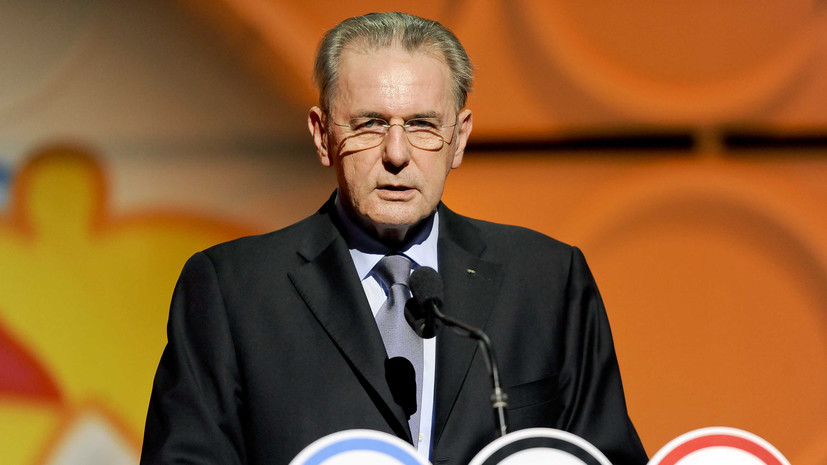Jacques Rogge was born in Ghent in 1942, during the German occupation of Belgium.
In the same year, the then President of the International Olympic Committee, Henri de Baye-Latour, died in Brussels.
After 69 years, Rogge will become the second Belgian to take over the post.
The future head of the Olympic movement was born into a sports family. His father was involved in athletics and rowing, and his grandfather was a cyclist. He connected his life with sports and Rogge. In his youth, he played rugby and was a member of the national team of his country, but he showed himself most brilliantly in sailing. Rogge became Belgian Champion 16 times, won the World Championships and participated in the Olympic Games three times, where his best result was 14th in 1972. At the same time, Rogge's main occupation was sports medicine - in his hometown he learned to be an orthopedic surgeon.
After finishing his sports career, Rogge took up sports politics.
Almost immediately, he had to face the first difficulties.
He led the Belgian delegation to the Moscow Olympics and faced great pressure from the government to support the US boycott.
However, the Belgians took part and performed under the Olympic flag.
By the way, once Rogge admitted that he admired the painting "Black Square" by Kazemir Malevich.
Rogge continued to lead the Belgian Olympic team for the next decade.
In 1989, he headed the national Olympic committee, the next year he was elected head of the European Olympic Committees, and a year later he became a member of the IOC.
The career of the former Belgian yachtsman and doctor began to develop so rapidly that he was soon perceived as the likely successor to Juan Antonio Samaranch, the most famous and active president of the IOC after Pierre de Coubertin.
In 2001, when the term of office of the Spanish functionary came to an end, Rogge confidently won the election of all much more experienced candidates, including the President of the World Anti-Doping Agency (WADA) Dick Pound.
As head of the IOC, Rogge was completely unlike his predecessor, who demanded to be addressed "Your Excellency" and stayed in the most luxurious hotels.
Democracy and simplicity were the basic principles of Rogge, which guided him at the head of the Olympic movement.
It was under him that the IOC took a course to reduce costs in organizing the Olympic Games, to contain the number of participants in competitions and sports represented in the program.
An important legacy of Rogge was the Youth Olympic Games, which were first held in 2010 in Singapore.
These competitions are more likely to fulfill a social and humanitarian function than a political and economic one, which was often blamed by the "adult" Games in the previous decades.
Rogge's attitude towards athletes is clearly characterized by one of the episodes that occurred during the Olympic Games in Beijing. Back then, FC Barcelona refused to send their rising star Lionel Messi to the competition. The head of the IOC had to intervene and remind that the young striker could be disqualified, he would not be released to the national team. As a result, he joined her and became an Olympic champion. However, Rogge was not always on the same wavelength with the athletes - once he reproached Usain Bolt for celebrating his victories too vividly and not showing due respect to his rivals, but then the functionary himself was accused of too old-fashioned attitude to the champion's emotions.
Other criticism towards Rogge was also enough, although he got much less than his predecessor and successor Thomas Bach. Western media were most often dissatisfied with the fact that the IOC allowed the Olympic Games to be held in Beijing and Sochi, to which the president replied that the internal affairs of China and Russia should not concern sports. In his era, the corruption scandal of 2002 and high-profile doping revelations in 2006 also thundered, but they did not affect the image of Rogge himself, who just considered the fight against doping by any means his priority task.
In 2013, Rogge's term came to an end. One of the most recent developments during his presidency was the announcement of Tokyo as the capital of the 2020 Olympic Games. Rogge passed away a few weeks after the competition, which he had not attended for the first time since 1968, was still held with great difficulty.

